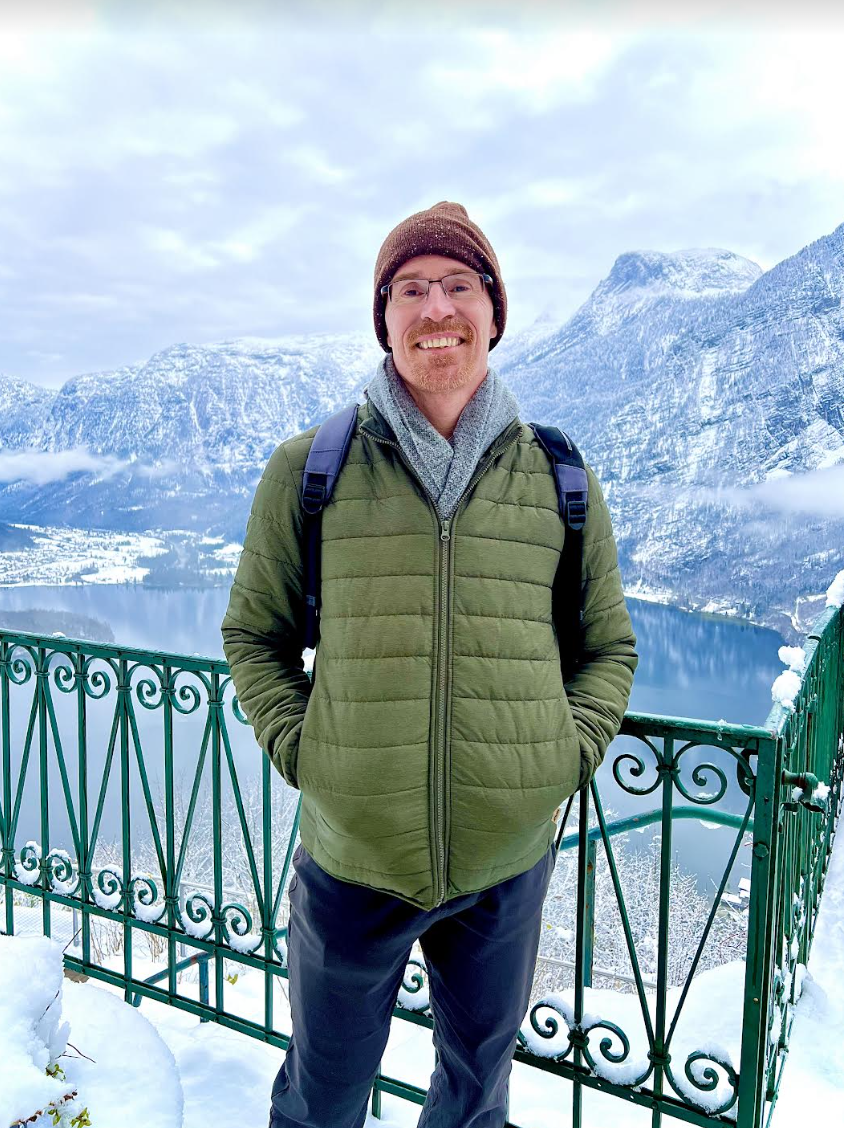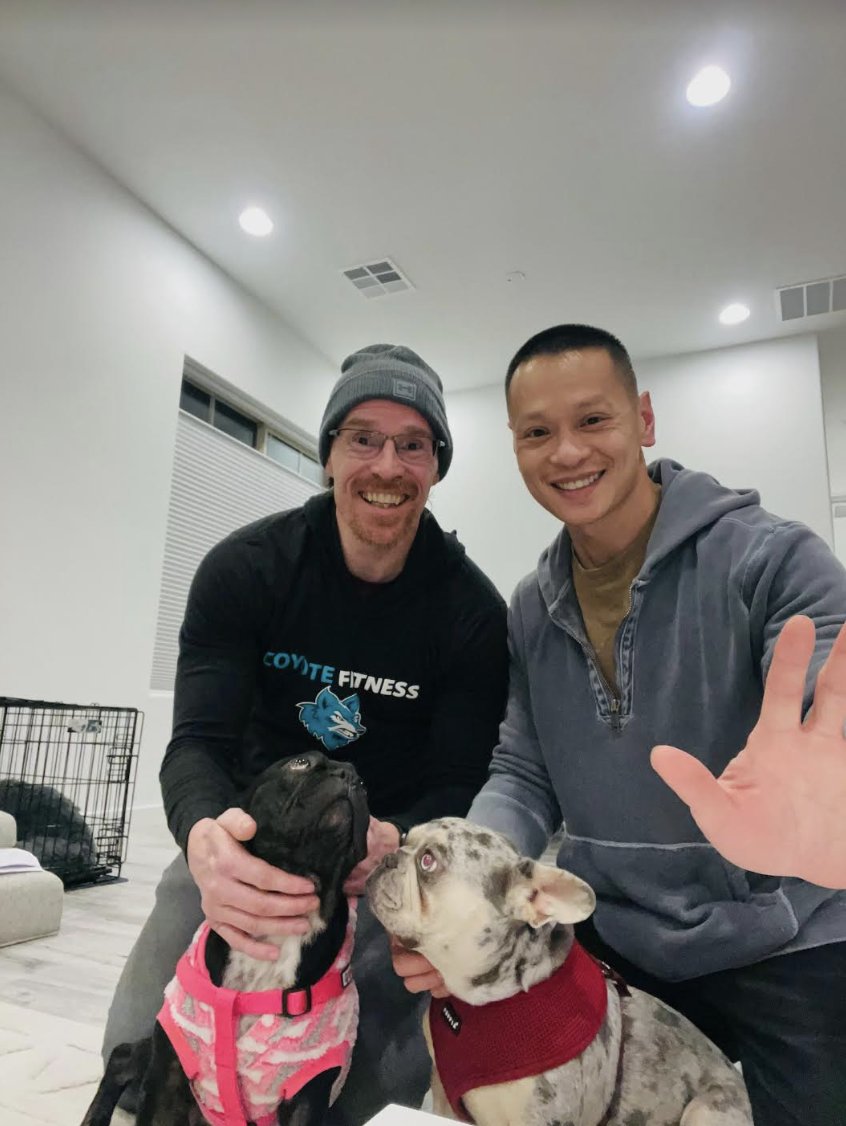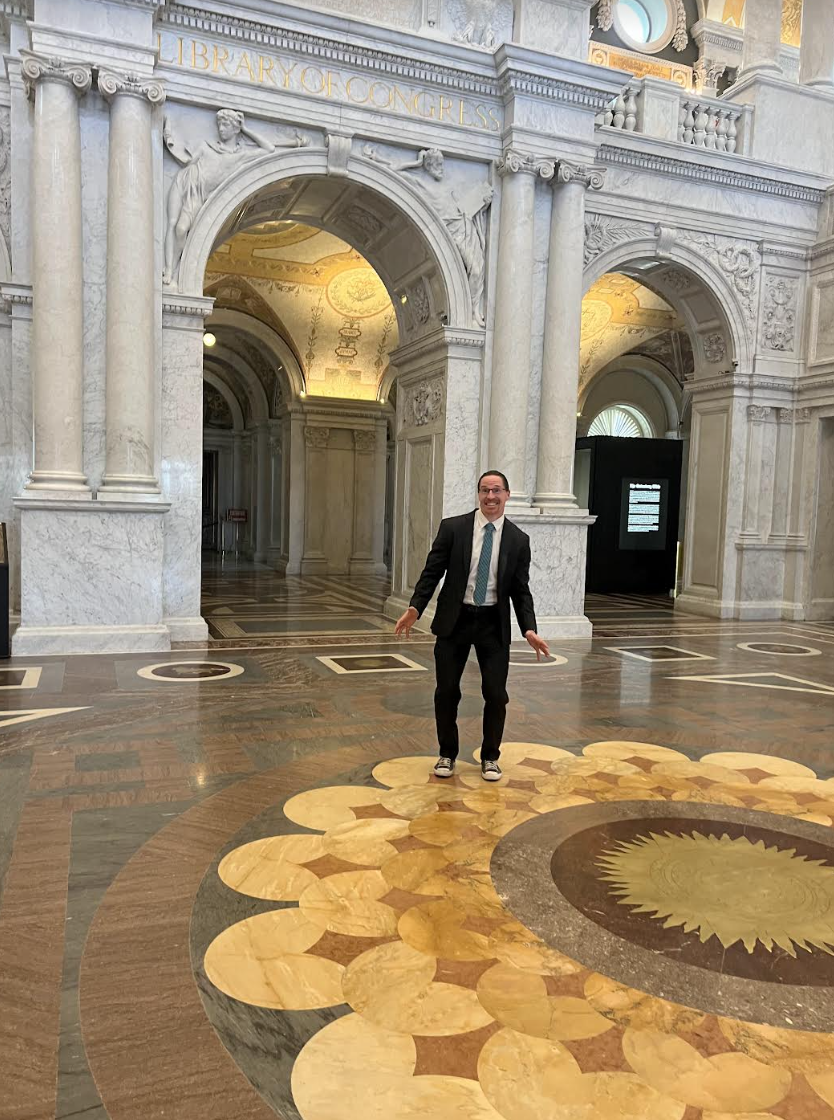Dr. Greg Peterson spent the first month of this summer in an empty house, sleeping on an air mattress, and shopping at Kohl’s for his day-to-day wardrobe needs to start his new job. He didn’t know when he moved to Salt Lake City that he’d be arriving a month before the moving truck with all his belongings. But he chooses to look on the bright side, saying: “We’ve got air conditioning, running water, Wi-Fi, a couple barstools, and we’re together. It will all work out. It’s an adventure.”
It's a life the Greg Peterson of ten years ago never anticipated possible: living in a committed relationship with a man he loves in Utah, where he has recently been named the president of Salt Lake Community College. The new job position surprises few, considering Greg’s longtime academic career passions and success. But a self-described “late bloomer in the love department,” it wasn’t until Greg’s late 30s that he allowed himself to finally explore the need to accept his orientation and pursue a relationship.
Growing up in Oregon City, Greg was always an academic. As a young student, he loved to sing, draw, play soccer and most of all, read. When Greg entered adulthood and became a first-generation community college student, he had an opportunity to teach ESL to adults who’d migrated to the States and saw up close how much they were able to improve their lives because of language acquisition. Greg’s eyes opened further when he worked in a furniture warehouse for a summer, “which was horrible but I had to,” and met co-workers who would have been doctors and professionals in their home countries but were stuck in difficult, menial jobs. These bonds inspired him to try to provide opportunities for all, with education as the change agent. Greg felt this could best be done by pursuing a career in the community college space.
Greg went on to earn a bachelor’s degree in English from BYU, a master’s in adult learning from Portland State University, a doctorate in educational administration from the University of Texas Austin, and an MBA from Kaplan University. As he studied, he initially worked as an ESL teacher, but gradually began to move into administration roles. Selected as an Aspen New President Fellow and recently recognized as East Valley Man of the Year by Positive Paths, throughout his career, Dr. Peterson has led key efforts in student learning and success that have impacted over 100,000 students through developing transfer partnerships and college promise programs at various institutions as well as launching the first community college Artificial Intelligence program in the nation.
Now recognized in his field, there was a time when one of Greg’s superiors noticed things weren’t going so well. While employed at Long Beach City College, Greg was battling dark emotions and trying his best to keep his personal life separate from the professional, as he’d done for decades. Feeling deep duress and isolation one night in which he was contemplating taking his life, he decided to call his parents. He wasn’t able to voice the source or extent of his despair on the phone, but the time and nature of the call concerned his parents and he felt it. “The worry I would hurt them if I were to do something made me think differently. That was a turning point to accepting this part of me.” Greg’s boss at work had also noticed something was off, that Greg wasn’t the happy, open person he’d once been. Greg says, “I came out to him, and he was really supportive.” That led to the beginning of Greg’s coming out journey.
Throughout his many years as a rising academic, Greg had been used to “living in my head,” so he had heretofore turned off his emotions and tried to stay there to avoid it all. He says, “I tried to be as obedient and as Christlike as I could be. All that emotion—the natural man—I tried to keep it locked away.” He recalls times in hiding in which people would ask him how his morning had gone, and he’d shut down and find himself debating whether it was safe to say what he’d had for breakfast. “I was managing everything, so worried about people finding this out about me and how bad I was.”
Finally one day, Greg decided to turn to God, and says he “really prayed.” In return, he says he felt God’s love and the divine confirmation that he was ok. After coming out to his boss, Greg wrote a letter to his parents, then told a couple brothers, then a couple friends in a “really slow process” in which Greg says, “I felt like I needed to know all the answers so I could answer all the questions I might get asked. I didn’t want to get pinned down and not know where I was, nor do or say something that would be held against me later or harm others. It took me longer to accept that where I am today might not be where I am tomorrow. I felt like people wanted me to be static, but that’s not how life works.”
The past few years reflect the opposite, with active changes for Greg. He remembers taking a survey at last fall’s Gather conference in which respondents were asked if five years ago, they knew where they’d be today on a scale of 1 to 5. Greg says he was in the 1 territory of never anticipating he’d be in a relationship or moving to Utah. But now, he’s in a wonderful live-in relationship with his formerly long-distance partner after making the move to accept the promotion at Utah’s top community college. It was a job interview process that also revealed how far things have come, as Dr. Peterson was able to openly talk about his own personal relationship as he expressed his commitment to honoring the best interests of the diverse student population at SLCC as both gay and a member of the Church.
Greg also stays active by working out at the gym almost daily, and he still loves to sing. The former college where he worked offered a Broadway music solos class that Greg took a few times both to observe student perspectives and for a chance to sing onstage himself. At one semester-end concert, he took on “You’ll Be Back” from Hamilton. Over the years, Greg’s also loved to sing in church, saying, “It’s one of the things I like best about going.”
While Greg maintains a belief in God and trusts the church is “a tool of our Heavenly Parents to guide us back and feel their love,” he says, “I don’t know that the church knows where I fit or has a place for me right now.” To expound, Greg says, “The church wants me, but not the full me. There’s an expectation I’d have to sacrifice parts of me to become like the Savior, and as a disciple, I believe this is true, but I can’t draw nearer to my Savior by sacrificing this authentic part of me. I can’t do that.” For now, Greg is most interested in focusing on walking with the Savior, day by day. Similar to the patience he embodied while waiting for the moving truck with his furniture to finally arrive (and it did), Greg says, “I can’t think about where I fit in the eternities in our church, but I do know that my Savior will provide a way for me, and I don’t have to have all the answers. I’ll just keep moving forward, trusting Him as I navigate where I feel His love, and where I need to be.”



















